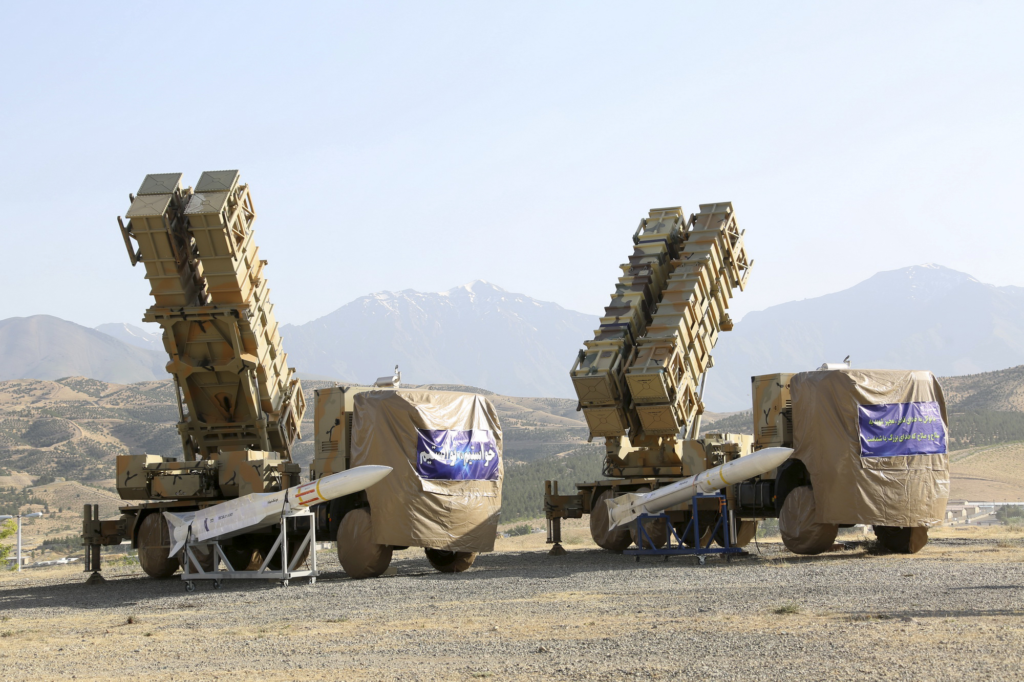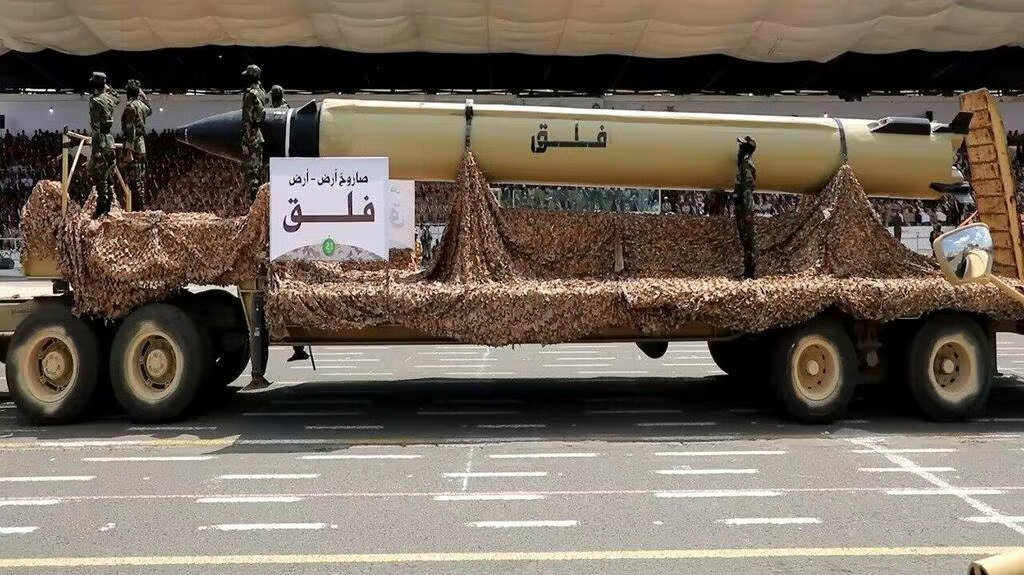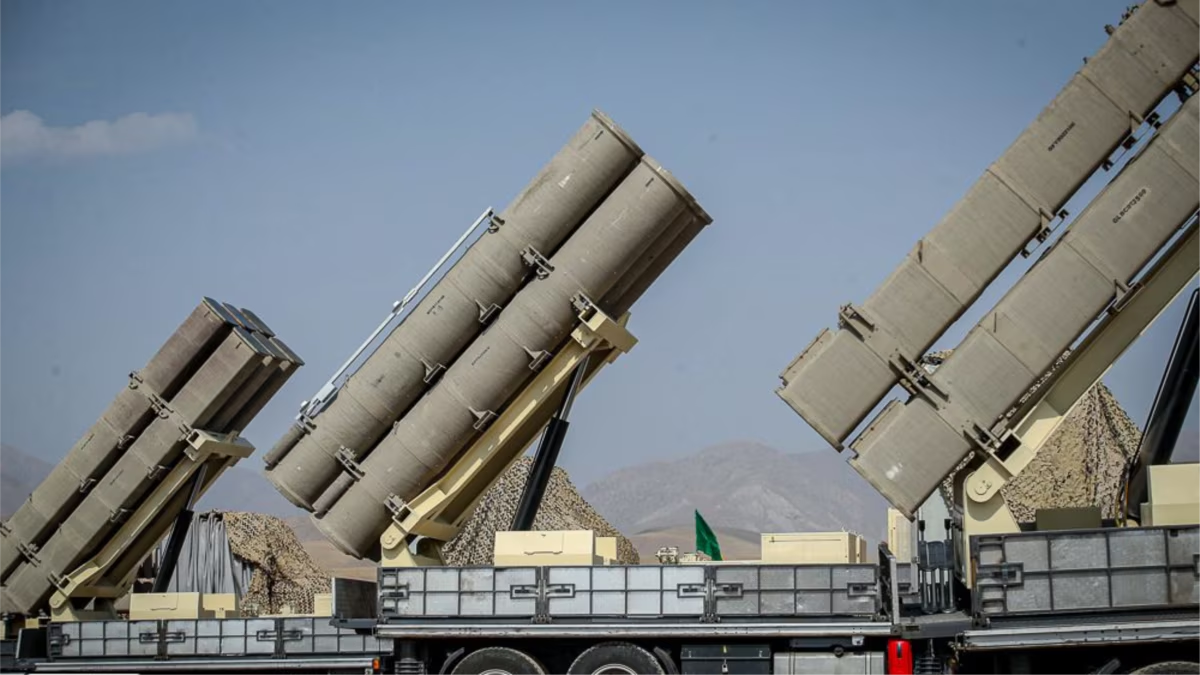Iran has recently delivered Fath-360 missiles to Russia, which raised concerns about the growing military support between the two nations. However, the delivery lacked something crucial: the mobile launchers needed to fire these short-range ballistic missiles.
This move has sparked questions about why the country held back the launchers, and experts have been speculating about the possible reasons.
The decision has left military analysts and global leaders wondering about Iran’s motivations. Let’s delve into why this could be the case and the implications it has on the ongoing conflict in Ukraine.
The Delivery of Fath-360 Missiles
Iran’s decision to supply Russia with Fath-360 missiles came to light when US Secretary of State Antony Blinken confirmed the delivery in early September.
The missiles are said to be ready for use by Russia in its conflict with Ukraine, and according to Blinken, they could be deployed within weeks.
The Fath-360 missile, developed by the country, is a short-range ballistic missile with a range of up to 75 miles (121 kilometers), making it a significant threat on the battlefield.
Iranian Blogger Hossein Shanbehzadeh Jailed for 12 Years for Posting ‘Dot’ on Khamenei X Post
Capable of traveling at four times the speed of sound when approaching its target, the Fath-360 could overwhelm Ukraine’s already strained air defenses.
Iran : a Mountainous, Arid, and Ethnically Diverse Country of Southwestern Asia
What makes this development even more concerning is the missile’s capability to strike short-range targets. This allows Russia to conserve its longer-range weapons for strategic hits deeper into Ukrainian territory.
While Iran’s supply of missiles to Russia has raised eyebrows globally, it is the absence of the mobile launchers that has garnered even more attention. The question remains: why would the country send powerful missiles but withhold the equipment needed to fire them?
Why Did Iran Hold Back the Launchers?
Several theories have been floated to explain why the country withheld the missile launchers from Russia. One possibility is related to the durability of the launchers themselves.
According to Fabian Hinz, an Iranian missile expert from the International Institute for Strategic Studies, the country has modified civilian trucks to act as mobile missile launchers.

These vehicles, often based on Mercedes and other manufacturers’ models, are designed to evade detection. However, Hinz suggests that these launchers may not be durable enough to handle the extreme winter conditions in Ukraine, which could hinder their operational capabilities.
Ballistic missiles like the Fath-360 require specially designed mobile launchers for accurate and reliable firing. Without these launchers, the missiles are essentially unusable.
This logistical gap between missile supply and launcher availability could delay Russia’s use of the weapons in Ukraine. the countrymight have decided to hold back the launchers due to concerns over the trucks’ ability to function in the harsh winter environment, thereby reducing the effectiveness of the missile system.
Another reason could be geopolitical considerations. David Albright, a former UN nuclear inspector and the current head of the Institute for Science and International Security, suggested that Iran’s leadership might be holding back the launchers to avoid international condemnation.
With Iranian President Masoud Pezeshkian set to meet European diplomats at the upcoming UN General Assembly, it is possible that the country is trying to maintain diplomatic space.
If Iranian missiles were seen being used in Ukraine, there would likely be significant global backlash, which could complicate Iran’s efforts to negotiate with Western nations on its nuclear program and other regional tensions.
The Impact on Ukraine and Russia’s Military Strategy
The delivery of the Fath-360 missiles to Russia adds another layer of complexity to Ukraine’s defense efforts. While Ukraine has been effective in adjusting its air defense systems to counter various threats from Russian forces, the introduction of Iranian missiles could pose a new challenge.
The Fath-360’s high speed and range make it a difficult target for Ukraine’s existing defense systems, and the country will likely need to adapt its strategies to counter these threats.
However, the absence of the mobile launchers significantly reduces the immediate impact of these missiles. Without the launchers, Russia cannot effectively deploy the Fath-360s on the battlefield, giving Ukraine more time to prepare and potentially disrupt the missile system’s integration into Russian military operations.

This delay could buy Ukraine some much-needed time to bolster its air defense systems and secure additional support from Western allies.
For Russia, the Fath-360 missiles offer an opportunity to diversify its arsenal and reduce its reliance on domestically produced munitions. With the war in Ukraine stretching into its second year, Russia has increasingly turned to external sources for military supplies.
Iran has emerged as a key partner in this regard, with missile deliveries potentially giving Russia an edge in short-range strikes. However, without the launchers, this advantage is yet to materialize fully.
The Geopolitical Calculations Behind Iran’s Move
Iran’s decision to supply Russia with missiles but hold back the launchers reflects the complex geopolitical landscape in which Tehran operates.
On one hand, the country is strengthening its ties with Russia, a key ally in the face of Western sanctions and diplomatic isolation. By providing military support to Russia, Iran signals its willingness to defy Western pressure and align itself more closely with Moscow.
On the other hand, Iran is also trying to avoid further diplomatic fallout with Western nations, particularly as it navigates sensitive negotiations related to its nuclear program.

The timing of the missile delivery—just ahead of the UN General Assembly—suggests that Iran is carefully balancing its actions to avoid provoking a strong international response.
By withholding the launchers, Iran may be attempting to mitigate the immediate impact of its missile deliveries, leaving room for diplomatic engagement.
Fabian Hinz’s theory about the durability of the modified launchers and Albright’s suggestion that Iran is holding back for diplomatic reasons both highlight the calculated nature of Tehran’s actions.
Iran is aware that providing Russia with fully operational missile systems could lead to international condemnation and jeopardize its diplomatic efforts. By delivering the missiles without the launchers, Iran retains some leverage while minimizing the risk of immediate backlash.
Iran’s decision to supply Russia with Fath-360 missiles but withhold the mobile launchers is a calculated move that reflects both military and geopolitical considerations.
The lack of launchers limits Russia’s ability to deploy the missiles immediately, giving Ukraine some breathing room to adapt its defenses. At the same time, Iran’s actions suggest a desire to avoid further international condemnation, particularly as it navigates sensitive diplomatic discussions with Western nations.
As the war in Ukraine continues, the role of Iranian-supplied weapons could become more significant. For now, however, the absence of the launchers has delayed the impact of the Fath-360 missiles on the battlefield.
Whether Iran will eventually supply the launchers remains to be seen, but for now, the situation underscores the complex web of alliances and interests that shape the dynamics of modern warfare.

